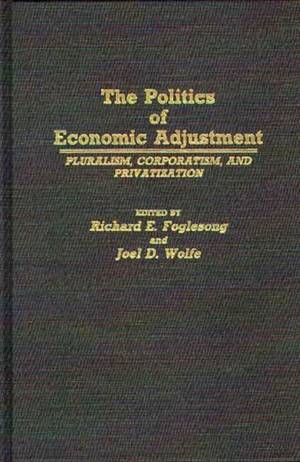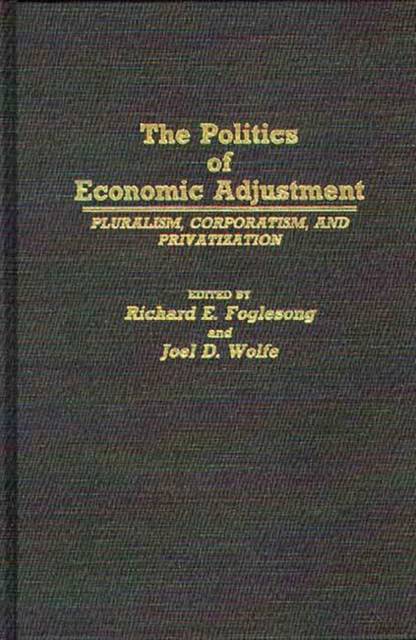
- Retrait gratuit dans votre magasin Club
- 7.000.000 titres dans notre catalogue
- Payer en toute sécurité
- Toujours un magasin près de chez vous
- Retrait gratuit dans votre magasin Club
- 7.000.0000 titres dans notre catalogue
- Payer en toute sécurité
- Toujours un magasin près de chez vous
Description
Privatization and corporatism along with pluralist forms of adaptation have received much attention as strategies for coping with the transformation of mature industrial economics. Yet, the burgeoning literature on this topic has, until now, lacked an adequate account of the determinants of a government's choice between such strategies or of the relationships between these strategies and the Keynesian economic framework that predominated in the postwar era. This groundbreaking study bridges these gaps by considering both the determinants of the choice of an adjustment strategy and how that choice affects the nature of liberal democracy. Written by a distinguished group of political scientists, the essays collected here examine the divergent responses of liberal capitalist nations to the problem of economic adjustment, giving special attention to the political factors affecting strategic choices aimed at bolstering employment, enhancing international competitiveness, and restoring healthy productivity rates.
The contributors examine in depth the experiences of the United States, Britain, France, West Germany, and Italy. They explain how these advanced industrial nations have faced economic crisis differently and why they have responded as they have. In each case, the author focuses on whether and at what level the state has pursued a corporatist approach involving a more direct government role in managing the economy with the assistance of private interest groups, a privatization strategy involving less state intervention and an increased reliance on market processes, or a form of pluralist adaptation. Throughout, the contributors demonstrate that the strategy pursued can have a fundamental impact on the character of democracy and the patterns of policy making. Students of political science as well as policy makers will find this book an incisive discussion of the myriad factors influencing the choice among competing strategies of economic adjustment.Spécifications
Parties prenantes
- Auteur(s) :
- Editeur:
Contenu
- Nombre de pages :
- 198
- Langue:
- Anglais
- Collection :
Caractéristiques
- EAN:
- 9780313266270
- Date de parution :
- 11-10-89
- Format:
- Livre relié
- Format numérique:
- Genaaid
- Dimensions :
- 156 mm x 234 mm
- Poids :
- 462 g

Les avis
Nous publions uniquement les avis qui respectent les conditions requises. Consultez nos conditions pour les avis.






